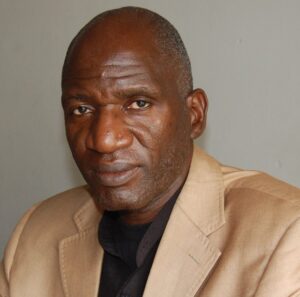Christian Scholarship: A Calling (Part 2)
By Dr. Luka Dinshak
The qualification of the Christian scholar
In this article, we will consider one qualification for the calling of Christian scholar. For every vocation, there is a qualification. No one should respond to an advertisement without checking whether he is qualified for the job. Advertisements for academic positions in universities usually specify the requirements for the various positions. from early careers (such as graduate assistants) to senior positions (such as professors) in the different disciplines. But there is one requirement that is peculiar to the Christian scholar if he or she is to succeed fully. He must be very sound and yet empty!
What God wants to do with us, the kind of wisdom and knowledge God wants to unleash through us, is nothing the world has known before. There is no database available that can match Him in whom is hidden all the treasure of wisdom and knowledge (John 7:14-16; Colossians 2:3). The world has famished for too long because we have not positioned ourselves in the proper place to receive and manifest this wisdom and knowledge. Whatever the world has known to this point comes largely from the intellectual capacity of man, which, though it is from God (because He created man), is limited. The new-creation man carries something beyond the ability of the natural man no matter how profound the natural man’s capacities may be. But the secret for obtaining that something is our LIMITATIONS!
To the world, a man’s limitation is the end of his ability. For the heavenly man, the new-creation person who has understanding, his limitation is the door to limitlessness. God delights in making manifest His greatness and power, but the channel He would use must be one who will leave no doubt that He is the one at work and not the instrument itself. God will not share His glory with any man (Isaiah 42:8). For us to qualify to be called by Him to manifest His wisdom and knowledge, therefore, we must count all that we have as nothing. This means that those who do not have what others may be boasting of are not necessarily at a disadvantage, as long as they are connected to His nature (divinity).
In Acts 3:1-10, Peter and John encounter a beggar born crippled who ask them for alms. They had no money, but their limitation became the opportunity to give the man what no one else could, and that action became a witness to Jesus that drew five thousand people to salvation. Could they have been done better with any amount of money they could have given him?
The church in Philadelphia was one of only of the seven churches in Revelation 2-3 that the Lord Jesus was pleased with. He had opened a door for them that no one could shut, and their first qualification for it was that their strength was small (Revelation 3:8). This was the opposite of the church in Laodicea, which considered itself rich and full of goods, needing nothing. Knowledge puffs up. It is typically a source of great pride. Many scholars who seem to have attained some prominence in academia are proud. Unfortunately, this pride will drive God away and deprive a man of access to divine knowledge and wisdom. The Christian scholar whom God would call is, in contrast, emptied of himself or herself (like an earthen vessel) so that the excellency of the glory will not be of him or her but of the Lord (2 Corinthians 4:7).
The evidence of a scholar’s readiness to be called and used by God is that he rejoices in his limitations because he knows that he is making room for the manifestation of God. Paul was once grieved that he had limitations and besought the Lord three times to take the problem away. When the Lord told him that His grace would suffice for him instead, he became most glad. He began from then on to take pleasure in his infirmities, necessities and all other limitations as he understood that the almightiness of God would cover him where he lacked (2 Corinthians 12:9-10). He knew that all things work together for good because he loved the Lord who had called him for His purpose (Romans 8:28). This attitude would guide Paul into conformity to the image of Jesus Christ which is the ultimate. Where a scholar feels sad and sorrowful because of a perceived or actual shortcoming despite this awareness of God’s sufficiency, he is not qualified for God’s call.
It is God’s way to take what is nothing and make something of it. From barren women he brought forth mighty men (Isaac, Joseph, Samson, Samuel and John the Baptist). From the family of Jesse, he picked David who was the least. Even His choice of Israel was not because they were a mighty people (Deuteronomy 7:7). Paul said regarding most of those that are called by God, in 1 Corinthians 1:26-29, that they are not wise according to the flesh nor mighty nor noble. God resists a proud person but gives grace to the humble whom He would exalt (Matthew 23:12; Luke 18:14; James 4:6; Philippians 2:8-9; I Peter 5:6). The stories of Moses (Exodus 3), David (I Samuel 16:6-13) of Gideon (Judges 6:14-16) and others confirm this. Gideon, when the angel of the Lord called him to deliver Israel from the Midianites, responded that his family was poor in Manasseh and that he was the least in his family, thereby indicating that he was a nobody. The Lord then assured him that He would be with him and that Gideon would strike down the Midianites as one man. By human strength shall no man prevail (1 Samuel 2:9). God does not take pleasure in the strength of a horse nor in the legs of a man but in the person who fears Him and whose hope is in His mercy (Psalm 147:10-11).
God is about to fill the earth with His knowledge. It is time for the manifestation of the sons of God. Jesus Christ, the firstborn of the sons of God, is the pattern to whom we must conform if we are to be among those through whom this marvel would be demonstrated. His cross has put an end not only to the old sinful nature but also to the limitations of the natural man.
When God would choose a man through whom He would dazzle the world with all its wisdom and idols, He chose Paul, an intellectual. Yet Paul knew that his learning was not the key to success in his calling. He was willing to set all that aside for the excellency of the knowledge of Christ Jesus who is all and in all (Philippians 3:8). Only through Him can we cast down all imaginations and everything that exalts itself against the knowledge of God, making them subject to Him (2 Corinthians 10:5).
Scholars who are qualified for God’s call have reached the point where they are willing to deny themselves and rejoice that they might not be regarded as anything. They know that in this situation of apparent weakness lie opportunities to bear witness to the Lord Jesus Christ, so that He would find space in them to make manifest His wisdom and knowledge, to the glory of God. These are the vessels He would use in these last days to confound the world.

Integration of Faith and Scholarship: Approach to Christian Pedagogy in Institutions of Higher Learning
By Pastor Peter Lee Oduor (PhD.)
Daystar University
Scholarship is a key driver of a society’s economic and social development. The quality of higher education drives national competitiveness and therefore should concern us all. There needs to be scrutiny of the approaches of scholarship to determine the achievement of impactful learning. Scholarship should be a means to an end, not an end in itself. Our real goal should be to catalyze transformative learning that can lead our society towards growth and development for a better future.
To determine what pedagogical approach is most productive and effective, faculty in institutions of higher learning need first to study and understand their learners and, second, to appreciate the value of collaborative learning that takes a human approach to teaching and insists on active participation by learners in the learning process. This pedagogical approach best positions learners as significant others who bring unique backgrounds, experience, and prior knowledge for teachers to build on toward the development of new knowledge.
Christian scholarship has as its starting point faith in God the Creator and Savior who in His sovereignty revealed Himself through Holy Scripture. To attain the goals of Christian scholarship, faculty members must have strong mastery of the biblical content and worldview, irrespective of their area of specialization. Christian faculty have a missiological calling to impact their learners that goes beyond the function of simply presenting content. Their primary vocation is to nurture minds. An authentic Christian pedagogy must be rooted in a firm commitment to making disciples and in a clear understanding of God’s purposes for his people in this life and the next one.
A proper understanding of Christian pedagogy demands that we learn from Jesus, the master teacher. Jesus was a model for us in these ways:
1. He placed more emphasis on character than on content.
2. He was more interested in internal character than in external show, which was a departure from the Pharisaic model.
3. Jesus focused in a balanced manner on the head (knowing what God has said and understanding what he expects), heart (being committed to God’s message and devoted to His kingdom priorities), and hands (employing spiritual gifts and natural abilities to accomplish God’s mission in the world).
This trilogy forms the basis for teaching that builds character and shapes lives. As faculty, we should prepare for this task through intentional capacity building and training as agents and missionaries in academia. Character-–building pedagogy calls for a mutual partnership between faculty and learners. Faculty need an association that brings together Christian scholars to learn from each other and to collaborate and be equipped on how to actualize this cooperation in the learning context. Faculty should demonstrate humility and a willingness to be taught as agents of change in the formation and development of the professionals who will in turn transform their societies
Society Opportunities
Library Reading Corner
The aim of the Library Reading Corner is to familiarize Addenda readers with the resources of the Society’s Library in support of its services and mission to equip for redemptive influence in five growth areas: (1) integration of faith and scholarship; (2) spiritual formation; (3) socio-cultural engagement; (4) vocational excellence in research, teaching, and administration; and (5) relational and leader development. Selected resources will take the form of an annotated bibliography as they may relate to the Society’s services such as upcoming or past webinars, activities of online groups such as the Library Reading Group, Continuing the Conversation (related to webinars), or any of the other online groups of the Society.
This month’s Library Reading Corner feature includes five library resources under the library category of Interacting with Cultures and Society. These resources also provide further reading for the Society’s April 2024 webinar, ‘Reading the Bible in Different Context’ by Prof. Elizabeth Mburu.
Annotated Bibliography
Library Search Terms related to the books below: understanding and practising intercultural interactions; colleague engagement; discipling colleagues; practices of intercultural interactions; interacting with cultures and society
1. ‘Misreading Scripture with Western Eyes: Removing Cultural Blinders to Better Understand the Bible’ by Brandon J. O’Brien and E. Randolph Richards
Brief Description: The authors of this book reflect on their own cross-cultural experiences in global missions. They highlight the significance of self-awareness and an understanding of cultural differences in language, time and social mores in guiding us to read and interpret the Bible through fresh and enlightened lenses.
2. ‘Engaging Our Disciplines in Conversation’ by Terence Halliday
Brief Description: This four-part series, which focuses specifically on the university campus setting, is guided by three premises: (1) God is everywhere in the university; (2) God has given us a rare calling to serve Him in the university; and (3) We are to bring Christian meaning to the university.
3. ‘Christianity and Culture’ by C. S. Lewis
Brief Description: The essay explores the value of culture to Christianity and concludes that culture has a distinct part to play in setting the conditions for sharing the gospel and advancing God’s Kingdom.
4. ‘An MIT Professor Meets the Author of All Knowledge’ by Rosalind Picard
Brief Description: MIT professor Rosalind Picard shares her experience of spiritual transformation, starting from her declaration of atheism at a young age to embracing the vocation of a Christian academic, through the influence of a Christian couple whose intellectual capacity she respected.
5. ‘Cultural Challenges to Faith: A Reflection on the Dynamics of Modernity’ by Paul O’Callaghan
Brief Description: This article, published in the journal Church, Communication and Culture, focuses on the challenges of modern culture and the Christian faith. Primarily, this article attempts to develop an understanding of ‘how modern culture, formed and informed to an important degree by faith, now challenges faith anew to provide answers to questions that have not been asked before.’ Second, this article will examine ‘how faith can challenge culture anew, not just by providing solutions but also by posing new questions.’
Call for Book Reviewers
If you would like to write a 1,000-word review on the following book, please contact Dr Ron Lindo at rlindo@SocietyofChristianScholars.org for further details. Reviews will be highlighted and published in a special section of our Society member site.
- African Hermeneutics by Elizabeth Mburu
Langham Press has provided a unique discount code to Society members for Mburu’s book African Hermeneutics. Here are the steps for receiving this discount:
- Go to the following link: https://langhamliterature.org/books/african-hermeneutics
- Click on buy now.
- Put in your email and shipping information; hit next (shipping is free)
- Before putting in your payment information, click on the Apply Discount Code.
- Enter the following code: SCSAH20
- Submit your payment.
- You should receive an ebook unlock code within 3 days of purchase. This is in addition to getting your physical copy when it arrives.
Upcoming Webinars
Be sure to check the Webinars Page for third-party webinars that are often added on short notice and for updated presenters and topics that may be helpful in equipping you to bring the gospel to bear in your university context.


How to Survive and Thrive on Life’s Highwire by Diane J. Chandler – Thursday, 20 June 2024 at 1400 UTC
How do you keep from collapsing under the weight of competing life priorities? We are burdened by unceasing work demands, burnout, family challenges, frayed emotions, life transitions, and financial uncertainties. Is there such a thing as balanced living?
On Thursday, 20 June 2024 at 1400 UTC, Dr Diane J. Chandler, Associate Professor of Christian Formation and Leadership at Regent University School of Divinity in Virginia Beach, VA (USA), will address how to keep your footing on life’s highwire when time demands threaten to knock you down. Like spiritual highwire aerialists, we must reaffirm basic biblical principles to retain our focus and renew our verve. We will consider the gleanings of one highwire aerialist who knows such challenges and then apply these gleanings to our lives.
Drawing from her book, Christian Spiritual Formation: An Integrated Approach to Personal and Relational Wholeness (IVP Academic, 2014), Dr Chandler provides a unique twist on healthy living in a God-centered approach designed to help you stay on life’s highwire and encourage others (including students and family members) to do the same. In preparation for the webinar, read the ‘Introduction’ to her book for an overview.
Dr Chandler holds a PhD in organizational leadership, an MDiv in practical theology, and an MS in education. She publishes widely on Christian formation and spirituality themes, women in leadership, global leadership, ethical leadership, and professional burnout. Diane travels internationally to equip leaders in various contexts and has a special interest in developing women leaders. In addition, she serves as an ordained elder at New Life Church, a multi-ethnic and multi-site church in the Hampton Roads area of Virginia.
Be sure to register today!
Disclaimer: The views and opinions expressed in the Addenda are those of the authors and do not necessarily reflect the views or positions of the Society of Christian Scholars.

